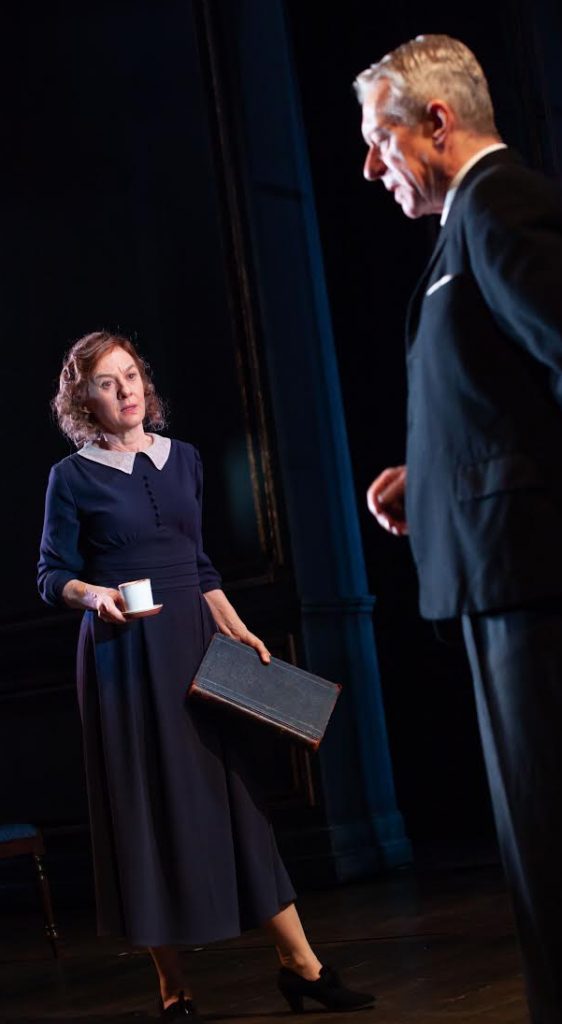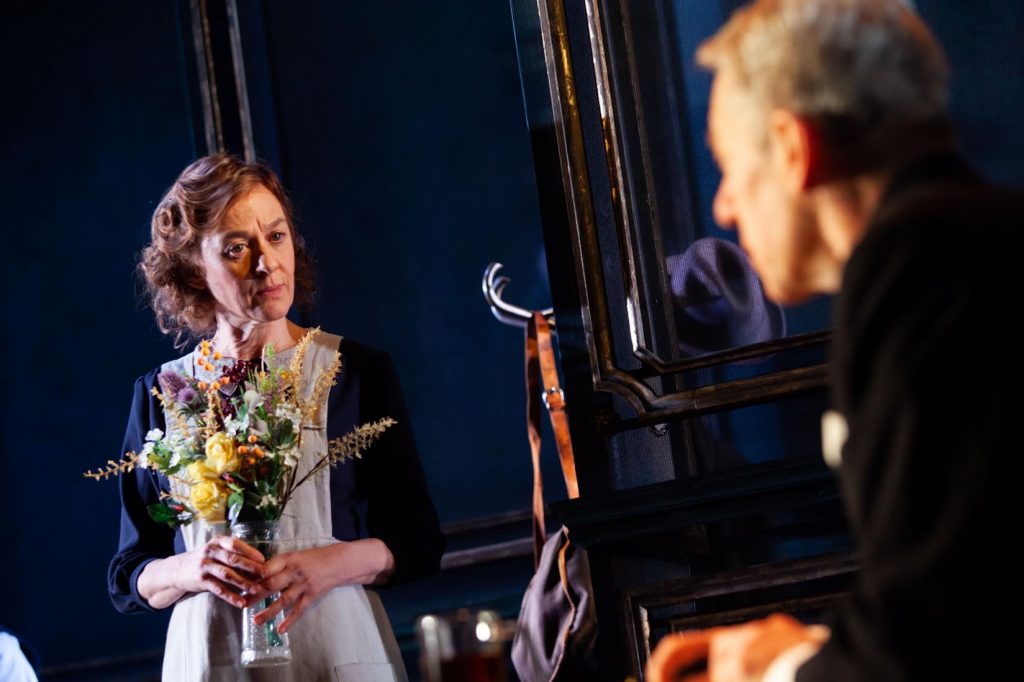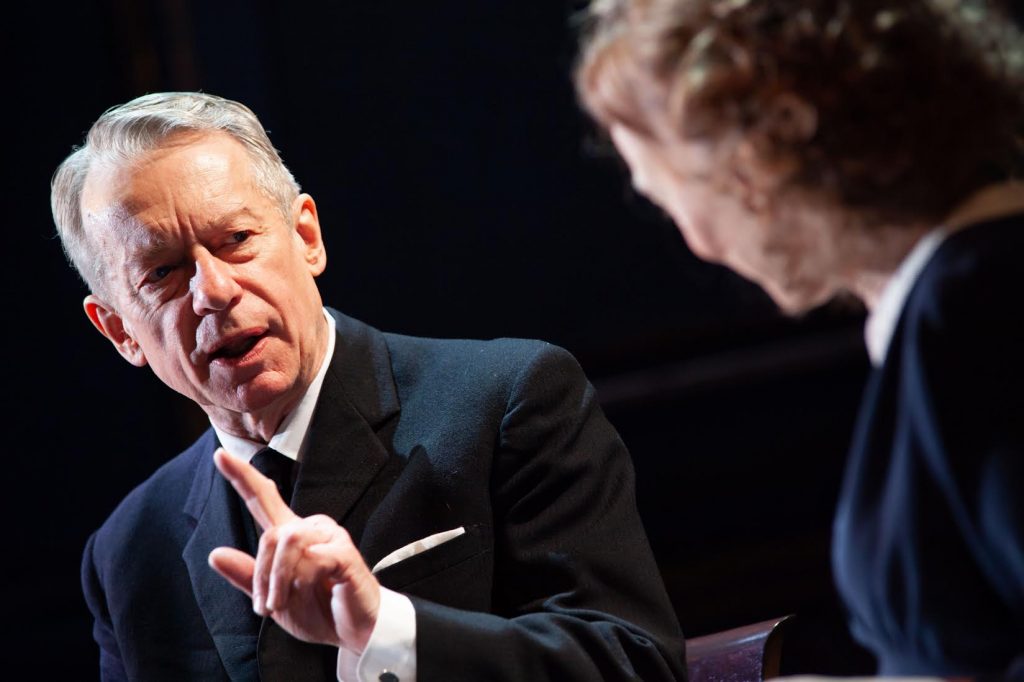- Stay Connected
 Abraham Lincoln
If given the truth, the people can be depended upon to meet any national crisis...
Abraham Lincoln
If given the truth, the people can be depended upon to meet any national crisis...
 Guildford news...
for Guildford people, brought to you by Guildford reporters - Guildford's own news service
Guildford news...
for Guildford people, brought to you by Guildford reporters - Guildford's own news service
Stage Dragon: Remains of the Day – Yvonne Arnaud Theatre
Published on: 11 Apr, 2019
Updated on: 11 Apr, 2019

Miss Kenton (Niamh Cusack and Stevens (Stephen Boxer)
By Alice Fowler
Kazuo Ishiguro’s masterpiece is all about the path not taken: a study in regret, the strictures of class and what happens when we refuse to see the truth. Stevens, the butler at the story’s heart, is a man careful never to forget his umbrella, but whose own feelings have been neglected and repressed.
Playwright Barney Norris has adapted Ishiguro’s novel with tenderness, reflecting on the experience of members of his own family who were “in service”. His adaptation treads a skilful line, remaining faithful to the book yet steering out of the shadow of the film adaptation starring Anthony Hopkins.
The action takes place in England before and after the Second World War. Stevens, convincingly played by Stephen Boxer, has dedicated his life to his master Lord Darlington (Miles Richardson), an appeaser. While Darlington has backed the wrong side of history, refusing to see the truth, Stevens is blind to his attraction to the housekeeper, Miss Kenton (Niamh Cusack).
Cusack makes fine work of Kenton, a woman who shows her feelings as best she can: bringing flowers to Stevens’ room and flirtatiously checking which book he is reading. She, like us, may long to shake Stevens into acknowledging reality. In this moving play, however – sensitively directed by Christopher Haydon – truth too often proves elusive.

The housekeeper brings flowers to the butler’s room.
Designer Lily Arnold’s effective set is made up of pillars, sometimes running with water. Characters step between them, moving back and forth in time as Stevens’ memories shift and at times threaten to overwhelm him.
This is also a political play. In one particularly poignant scene, upper class MPs turn on Stevens and question him on complex issues of international politics. Stevens, trapped by his class, education, the time in which he lives and a life of dedicated service, cannot answer. Meanwhileupper-class in a cafe in the West Country, a man of humble background, who has lost a son in the Great War, speaks up for democracy.

Kenton reflects on what might have been.
Writer Ishiguro moved to Britain with his family aged five and came to live in Guildford. It is easy to imagine, watching this fine play at the Yvonne Arnaud, that his acute observations of the English class system were honed not far away.
As so often when we examine the past, modern references abound. This study of uptight Englishness also explores our relationship with Europe. Thought-provoking and timely, it is not to be missed.

Runs until: 13 April 2019 tickets may still be available via www.yvonne-arnaud.co.uk or by calling the box office on 01483 440000.













Beverley Healing
April 11, 2019 at 6:42 pm
I enjoyed it so much I have been moved to comment on how excellent this production was.